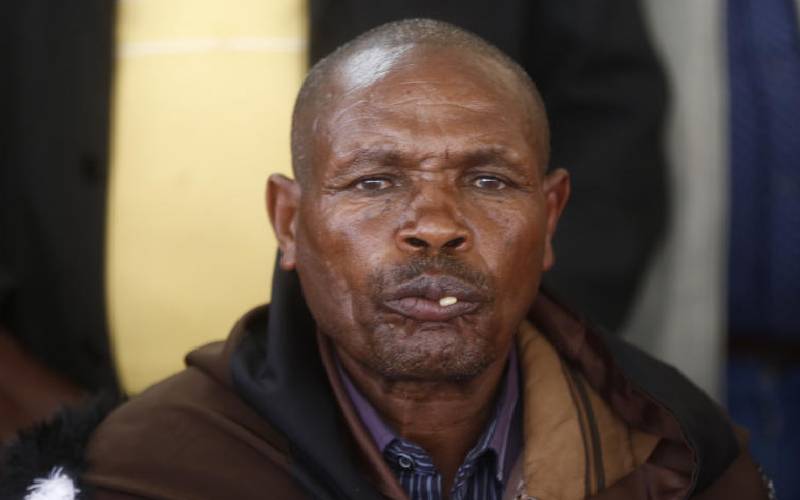×
The Standard e-Paper
Stay Informed, Even Offline

Newly elected Ogiek Council of Elders chairman John Sironga addresses the media in Nakuru on September 6, 2020. [Kipsang Joseph, Standard]
The Ogiek community has declared their former council of elders redundant and selected an interim council to represent them implement a ruling by the African Court of Human and Peoples’ Rights.